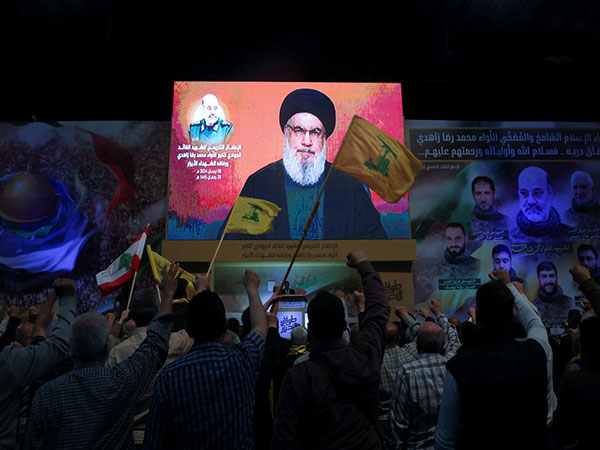Targeting Hezbollah's Nasrallah: Implications and Future Leadership
The potential killing or incapacitating of Hezbollah leader Hassan Nasrallah, targeted by an Israeli strike, would be a major setback for the Iran-backed group. Analysts suggest his removal could destabilize Hezbollah, which is significant for Lebanese Shi'ites. His death could elevate Israel's strategic positioning but also pose challenges in leadership succession.

Killing or incapacitating Hezbollah leader Hassan Nasrallah would deliver a significant blow to the Iran-backed Lebanese group, analysts stated after reports emerged that Israel targeted him with a strike.
A source close to Hezbollah confirmed Nasrallah was still alive after the attack on Beirut's southern suburbs, a Hezbollah stronghold, on Friday evening. Tehran is currently verifying Nasrallah's condition, according to a senior Iranian security official. Replacing Nasrallah is expected to be more challenging now following recent Israeli attacks that have killed top Hezbollah commanders, raising internal security concerns.
"The whole landscape would change significantly," commented Mohanad Hage Ali, deputy research director at Carnegie Middle East Center. "He has been the glue holding an expanding organization together." Formed by Iran's Revolutionary Guards in the 1980s, Hezbollah has grown into a major socio-political force for Lebanese Shi'ites, with Nasrallah at its core. Nasrallah's death would not collapse Hezbollah but would severely impact morale and emphasize Israel's security and military edge, notes Lina Khatib of Chatham House.
(With inputs from agencies.)
- READ MORE ON:
- Hassan Nasrallah
- Hezbollah
- Israel
- Iran
- Beirut
- air strike
- leadership change
- morale
- security
- politics
ALSO READ
Adani Green Energy Limited Announces Leadership Changes
Russian Air Strike Shatters Kharkiv Residential Building, Injuring Dozens
Delhi BJP Criticizes AAP's Leadership Change: 'Character Remains Unchanged'
Lebanon's Health Ministry reports at least 8 killed, 59 wounded in Israeli strike on Beirut, reports AP.
Lebanon's official news agency reports that home solar energy systems exploded in several areas of Beirut, reports AP.










